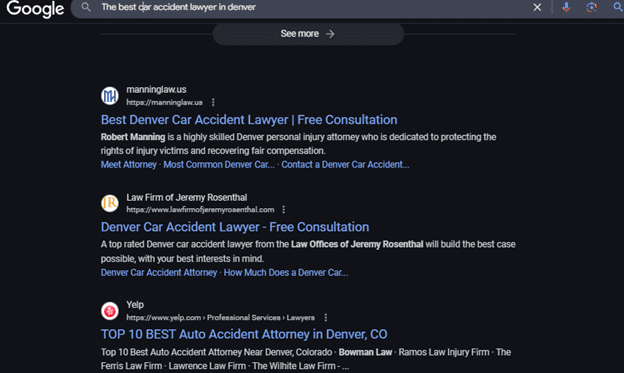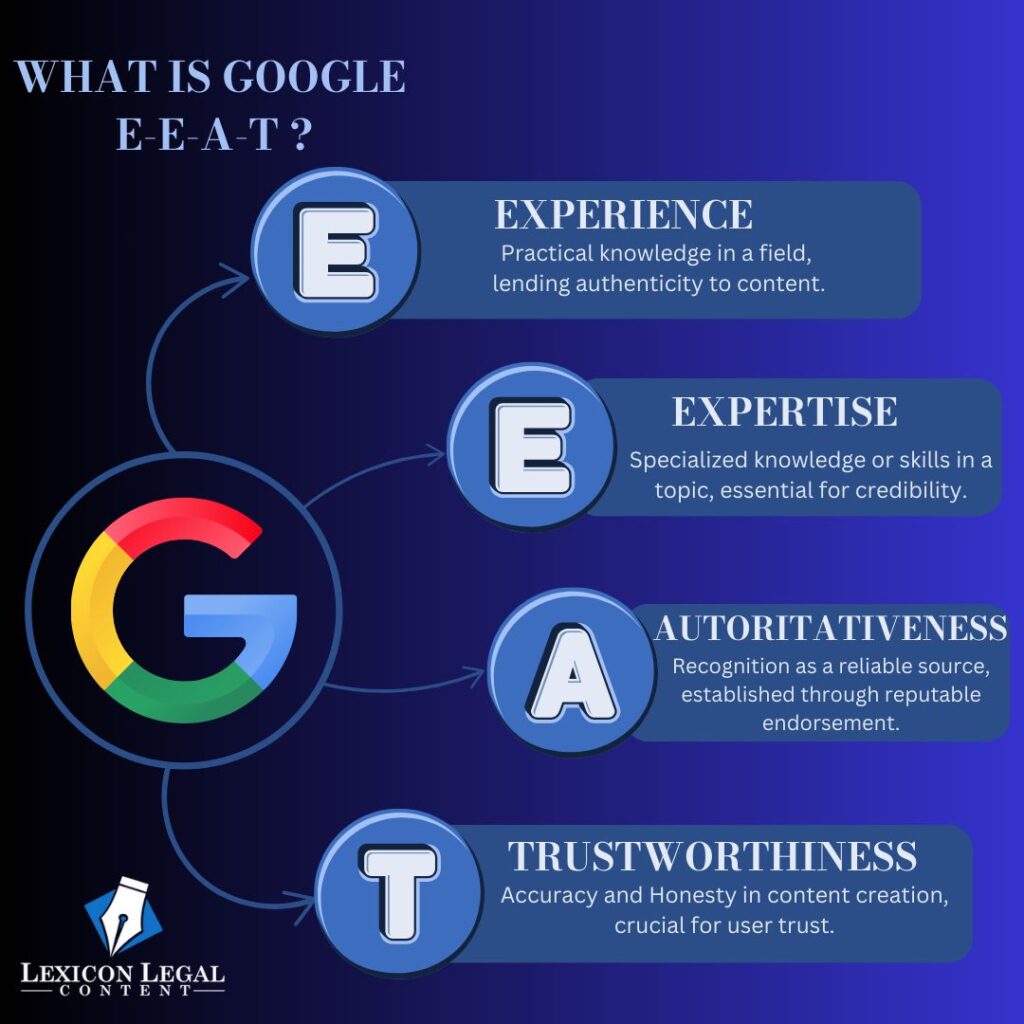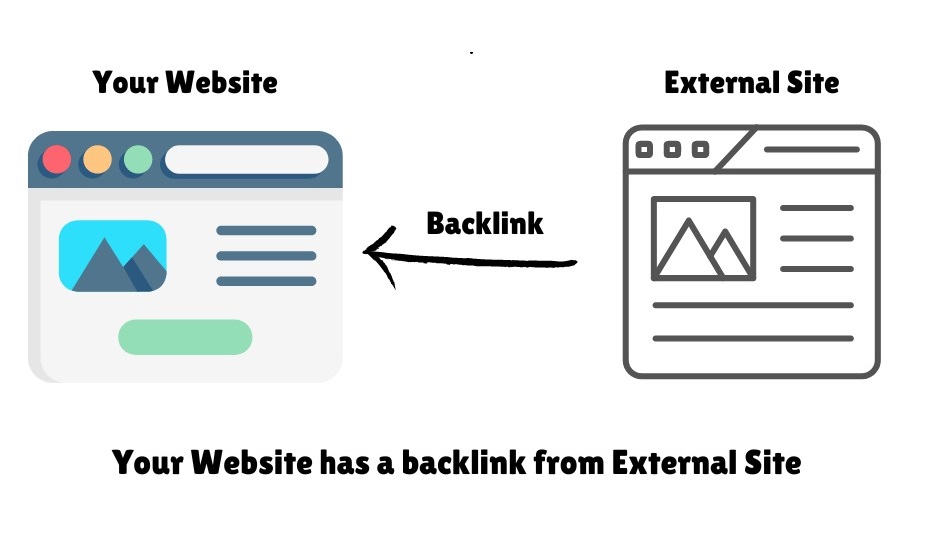When it comes to marketing legal services, things are different than they are in other industries – especially when it comes to content. Law firm marketing is subject to certain restrictions, and they go far beyond making sure that the legal information on a firm’s website is accurate. For example, you can’t use language that implies a guarantee of a certain outcome. Similarly, in most jurisdictions, you cannot call yourself an “expert” or a “specialist” in a particular area of law.
When it comes to how you write content for a law firm, you need to know the law, how to do legal research, advertising regulations, and SEO best practices. After years of helping attorneys get to the top of the search results for valuable keywords, I’ve leadualrned that legal content creation requires a unique blend of skills that most general writers simply don’t possess.
Legal content marketing isn’t just about good writing—it’s about mastering a complex set of rules while still producing effective marketing materials. This delicate balance requires specialized knowledge that bridges legal expertise and marketing strategy, setting the stage for what I like to call “The Dual Audience Challenge.”
The Dual Audience Challenge
Here’s the thing about legal content that makes it so tricky: you’re always writing for two completely different audiences simultaneously.
On one hand, you need other attorneys and legal professionals to respect your expertise and potentially refer cases your way. On the other, you need potential clients—who might not know a tort from a torte—to actually understand what you’re talking about.

This isn’t just challenging; it’s the fundamental puzzle that shapes everything about legal content creation. Too technical, and you’ll lose potential clients. Too simplified, and you might sacrifice credibility with other legal professionals.
I’ve seen brilliant attorneys struggle with this balance. They’ll write something perfectly accurate that no potential client would ever finish reading, or they’ll oversimplify to the point where other lawyers would question their expertise.
The sweet spot exists, but finding it requires intention and practice.
Don’t Forget About Google!
While balancing the needs of both legal professionals and potential clients is challenging enough, there’s another critical player in this equation: search engines.
The best legal content in the world is worthless if no one can find it. This means understanding how Google evaluates legal content specifically—and it’s not just about keywords anymore. For legal topics in particular, Google scrutinizes content for what they call “E- E-A-T” (Experience, Expertise, Authoritativeness, and Trustworthiness).
I’ve seen meticulously researched articles from prestigious firms languish on page five because they ignored search intent or failed to structure their content properly. Conversely, I’ve watched smaller practices outrank industry giants by strategically organizing their expertise in ways that search engines can easily interpret.
This isn’t about keyword stuffing or technical tricks. It’s about demonstrating genuine expertise in ways that both humans and algorithms can recognize. Success requires understanding how to translate your legal knowledge into content that satisfies the questions potential clients are actually typing into search bars.
The challenge is implementing these SEO best practices without compromising the delicate balance you’ve already struck between technical accuracy and accessibility. This is why generic content writers often struggle with legal topics—they lack the specialized knowledge to navigate all three dimensions successfully.
Choose Topics That Actually Matter
When I look at most law firm blogs, I see the same recycled topics over and over. “What to do after a car accident” has been written a gazillion times (that’s the exact count, by the way).Yes, it’s relevant—but it’s also completely saturated.
Instead, I recommend looking for blog topics through three different lenses:
First, what are your clients actually asking you? Not what you think they should be asking, but what are the questions that come up again and again in initial consultations? These questions reveal information gaps that your potential clients are actively trying to fill.
Second, where does your expertise truly shine? Maybe you’ve developed a reputation for handling unusual custody situations, or perhaps you’ve found an innovative approach to helping clients with underwater mortgages. These differentiators make for compelling content because they highlight what makes your firm unique.
Third, what searches have reasonable competition levels? Sometimes the most obvious topics are dominated by giant legal directories and mega-firms with massive marketing budgets. Look for more specific, long-tail topics where you have a realistic chance of visibility.
A personal favorite strategy of mine is to combine local knowledge with legal expertise. A post about “How Recent Changes to County Family Court Scheduling Affect Your Divorce Timeline” might not have massive search volume, but the people who do find it will be exactly the right potential clients in exactly the right location.
Writing That Sounds Like a Human, Not a Statute
Let’s talk about the actual writing process, which is where so many law firms get tripped up. Legal training literally rewires your brain to write in ways that, while precise, can be utterly impenetrable to regular humans.
We once worked with a tax attorney whose first drafts read like they were written for the Supreme Court rather than someone Googling “do I have to pay taxes on my side hustle?” We had to develop a whole system where he’d write the technically perfect version, and then we’d translate it into what I called “concerned human” language.
Here’s our approach: Imagine explaining the concept to your smart friend who works in a completely different field. They’re intelligent but don’t have your specialized knowledge. What examples would make it click for them? What analogies would bridge the gap between their existing knowledge and this new concept?
This doesn’t mean dumbing things down—it means translating expertise into accessibility. It’s the difference between saying “the statute of limitations creates a time-barred affirmative defense” and “you have a limited window of time to file your case, and waiting too long can result in losing your right to compensation entirely.”
Stories work wonders here too. The human brain is wired for narrative. When you frame legal concepts within stories (even anonymized or hypothetical ones), you create mental hooks that help readers grasp and retain information. Instead of explaining premises liability in the abstract, tell the story of a client who slipped on an unmarked wet floor at a restaurant and the factors that determined liability in that case.
Yes, Accuracy Still Matters (A Lot)
While we’re making legal content more engaging and accessible, we absolutely cannot sacrifice accuracy. This is non-negotiable, and it’s another reason why legal content is uniquely challenging. Not only do you have an ethical duty to provide accurate legal information, but Google will penalize your site if it determines that it is untrustworthy.
The law changes, varies by jurisdiction, and is filled with exceptions and nuance. What’s true for a Minnesota family law case might be completely different in Florida. What was accurate last year might be outdated after a new Supreme Court decision.
This means legal content requires a different level of ongoing maintenance than most other industries. It also means that whoever writes your content needs a solid understanding of legal concepts and the ability to research effectively—or at least a strong quality control process involving attorney review.
I’m a big fan of using softening language when appropriate: “In many states,” “typically,” “generally,” or “in most cases” can help you provide useful information while acknowledging that exceptions exist. Just don’t overdo it to the point where your content becomes so vague it’s useless.
SEO Still Matters (Just Not How You Might Think)
SEO can feel like this mysterious force controlled by the whims of Google’s algorithm changes. But for legal content, the fundamental principles remain remarkably stable: create genuinely useful content that answers the questions your potential clients are asking.
The technical aspects matter, sure. You’ll want your content properly structured with appropriate headings, meta descriptions, and internal linking. You’ll want to be mindful of keywords without stuffing them awkwardly into every paragraph.
But the most important SEO factor for law firms is demonstrating experience, expertise, authority, and trustworthiness (what Google calls E-E-A-T). This means accuracy matters for SEO as well as ethics. It means citing sources when appropriate. It means updating older content rather than letting it languish with outdated information.
Local relevance is particularly crucial for law firms. Most legal issues have geographic constraints, so your content should reflect your practice area both in jurisdiction and in local detail. Generic content that could apply anywhere will almost always underperform compared to content with specific local relevance.
The Art of the Non-Sleazy Call to Action
Few things are cringier than seeing an insightful, helpful legal article end with “CALL NOW FOR YOUR FREE CONSULTATION!!!” complete with multiple exclamation points and urgent all-caps desperation.

Your potential clients are often facing some of the most stressful situations of their lives—divorce, injury, criminal charges, bankruptcy. They’re looking for a trusted advisor, not a late-night infomercial.
The most effective calls to action in legal content acknowledge the reader’s situation and offer a clear next step that demonstrates value. “Navigating a custody dispute can feel overwhelming. Our family law team has guided hundreds of parents through this process, and we’re happy to help you understand your options in a confidential consultation.”
Give them multiple ways to reach out based on their preference—phone, email, contact form—and set appropriate expectations about what happens next. Will an attorney call them back within 24 hours? Will they speak with an intake specialist first? Transparency builds trust from the very first interaction.
How to Write Content for a Law Firm: Why Specialized Legal Content Creation Matters
After years in this industry, we’ve seen the same pattern repeatedly: law firms try to save money by assigning their content creation to a general marketing agency, a paralegal with “good writing skills,” or an overseas content mill. Six months later, they’re frustrated with the lack of results and questioning whether content marketing works at all for legal services.
The truth is that effective legal content sits at the intersection of legal knowledge, strategic marketing, and exceptional writing. It’s a specialized skill set that’s difficult to find in one person and requires real investment to do well.
But when done right, the ROI on quality legal content is remarkable. I’ve seen firms completely transform their practice through a strategic content approach—attracting better-qualified leads, spending less on advertising, and building authority that leads to media mentions and referral relationships.
Whether you’re just starting to build your firm’s content strategy or looking to improve what you already have, understanding these principles can help you create legal content that genuinely connects with potential clients while supporting your broader business goals.
And if you ever feel overwhelmed by the process? That’s what specialized legal content creators like us at Lexicon Legal Content are here for. We live and breathe this stuff so you can focus on what you do best—practicing law and serving your clients. Contact us today to learn more.





